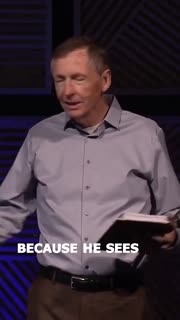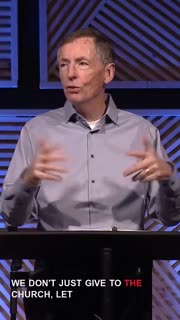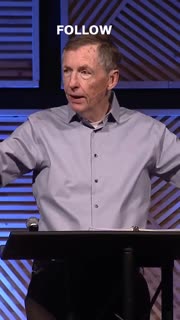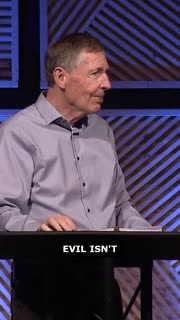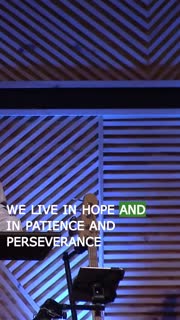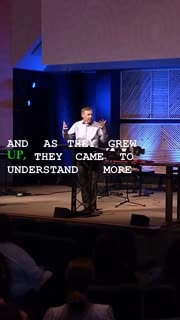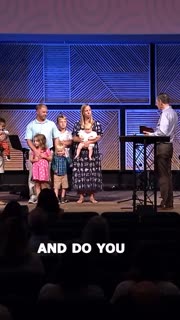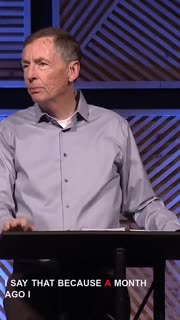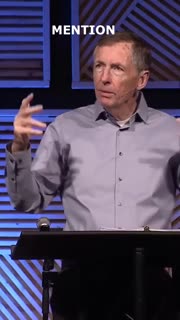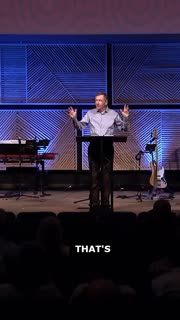Baptism, Persecution, and the Unstoppable Gospel
Devotional
Sermon Summary
Bible Study Guide
Sermon Clips
### Quotes for Outreach
1. "Because He sees us, we come to Him with reverence. Because He invites us to see Him, we come with confidence." [30:56] (6 seconds)
2. "We don't just give to the church, let alone to a budget. We give to the Lord. I want to invite you to give some thought to that. And if you're already giving, what is God saying for you to do for this next fiscal year? And thank you for your faithfulness." [43:06] (12 seconds)
3. "Jesus said, if you follow me, you will suffer some forms of persecution, some kind of pushback. All through here, you see this back and forth. A lame man is healed. Do they celebrate? No. This dark force pushes back through the religious authorities. Great numbers are converting. They're put in jail. More conversions. They're arrested and threatened with death. Priests are converting. They entrap Stephen. And they kill him." [52:38] (28 seconds)
4. "Evil isn't going to win. We may be damaged, we'll never, never be defeated. You know, a generation ago, maybe more than that, a guy named Fulton Sheen was the first great radio preacher. And in 1974, 50 years ago, he made this comment, he says, we're at the end of Christendom. He said that 50 years ago, he understood what was going on. And he said, even though we don't see the decline, what we do now, now we see the decline. But then he went to say this, these are great and wonderful days in which to be alive." [01:09:30] (37 seconds)
5. "We live in hope and in patience and perseverance and faithfulness. And we give ourselves to you again as you've already given yourself to us in Jesus' name. Amen." [01:10:17] (12 seconds)
### Quotes for Members
1. "And as they grew up, they came to understand more of what that call meant on their lives, who they really were. And in the New Testament, there's no change from that. The covenant sign changes to baptism, but it's also applied. It's applied to our children. And so we have two families presenting children this morning, the Fricks family and the Pollard family, and I'd like to ask them to come forward at this time and note that they have parents and grandparents on both sides, both of these families going back. And you see how this spiritual line continues down through the ages." [31:32] (34 seconds)
2. "And do you lastly realize this isn't magic, but that you're entering into covenant with God to raise your children in the fear and admonition of the Lord, to pray for them, to pray with them, to keep them in the house of God and with God's people, and to do your utmost personally to lead them along the path of faith and knowledge of Christ, do you?" [33:29] (20 seconds)
3. "I say that because a month ago I suggested the Book of Acts as like a family album. And we can look at these people. We can look at these people in their lives and not fully appreciate what they have done. When we look at them, we're looking at our own roots. We are the descendants and the heirs of everything they accomplished. The story they started continues through us." [44:51] (23 seconds)
4. "And I mention it because Jesus said, His followers should be able to discern the times in which they're living. They should be able to recognize which way the wind is blowing. And I'm saying we have more in common with these ancient Christians than we might think we do, because we're not living in the world we did within memory. We're moving into a much more difficult world. And like those early Christians, we need to realize Christ may be on the throne. He may be king. He may be reigning. But we don't get a pass." [52:38] (29 seconds)
5. "And I think that's interesting. Their first instinct was political. And we live in an age where politics is the alternate religion. I would call what we're living in something bordering on totalitarian. Everything has become political. It's constant. And we're surrounded by technology that just propagandizes us constantly. And politics is important. If you love your neighbor, you live in a society where you can still vote and have some kind of voice and influence, then you ought to care to some degree about politics. But the opposite problem is idolizing it and thinking that's the main thing or the ultimate thing. It's really not." [01:07:09] (38 seconds)
Ask a question about this sermon
1. "Because He sees us, we come to Him with reverence. Because He invites us to see Him, we come with confidence." [30:56] (6 seconds)
2. "We don't just give to the church, let alone to a budget. We give to the Lord. I want to invite you to give some thought to that. And if you're already giving, what is God saying for you to do for this next fiscal year? And thank you for your faithfulness." [43:06] (12 seconds)
3. "Jesus said, if you follow me, you will suffer some forms of persecution, some kind of pushback. All through here, you see this back and forth. A lame man is healed. Do they celebrate? No. This dark force pushes back through the religious authorities. Great numbers are converting. They're put in jail. More conversions. They're arrested and threatened with death. Priests are converting. They entrap Stephen. And they kill him." [52:38] (28 seconds)
4. "Evil isn't going to win. We may be damaged, we'll never, never be defeated. You know, a generation ago, maybe more than that, a guy named Fulton Sheen was the first great radio preacher. And in 1974, 50 years ago, he made this comment, he says, we're at the end of Christendom. He said that 50 years ago, he understood what was going on. And he said, even though we don't see the decline, what we do now, now we see the decline. But then he went to say this, these are great and wonderful days in which to be alive." [01:09:30] (37 seconds)
5. "We live in hope and in patience and perseverance and faithfulness. And we give ourselves to you again as you've already given yourself to us in Jesus' name. Amen." [01:10:17] (12 seconds)
### Quotes for Members
1. "And as they grew up, they came to understand more of what that call meant on their lives, who they really were. And in the New Testament, there's no change from that. The covenant sign changes to baptism, but it's also applied. It's applied to our children. And so we have two families presenting children this morning, the Fricks family and the Pollard family, and I'd like to ask them to come forward at this time and note that they have parents and grandparents on both sides, both of these families going back. And you see how this spiritual line continues down through the ages." [31:32] (34 seconds)
2. "And do you lastly realize this isn't magic, but that you're entering into covenant with God to raise your children in the fear and admonition of the Lord, to pray for them, to pray with them, to keep them in the house of God and with God's people, and to do your utmost personally to lead them along the path of faith and knowledge of Christ, do you?" [33:29] (20 seconds)
3. "I say that because a month ago I suggested the Book of Acts as like a family album. And we can look at these people. We can look at these people in their lives and not fully appreciate what they have done. When we look at them, we're looking at our own roots. We are the descendants and the heirs of everything they accomplished. The story they started continues through us." [44:51] (23 seconds)
4. "And I mention it because Jesus said, His followers should be able to discern the times in which they're living. They should be able to recognize which way the wind is blowing. And I'm saying we have more in common with these ancient Christians than we might think we do, because we're not living in the world we did within memory. We're moving into a much more difficult world. And like those early Christians, we need to realize Christ may be on the throne. He may be king. He may be reigning. But we don't get a pass." [52:38] (29 seconds)
5. "And I think that's interesting. Their first instinct was political. And we live in an age where politics is the alternate religion. I would call what we're living in something bordering on totalitarian. Everything has become political. It's constant. And we're surrounded by technology that just propagandizes us constantly. And politics is important. If you love your neighbor, you live in a society where you can still vote and have some kind of voice and influence, then you ought to care to some degree about politics. But the opposite problem is idolizing it and thinking that's the main thing or the ultimate thing. It's really not." [01:07:09] (38 seconds)
